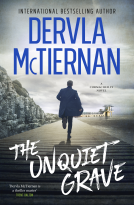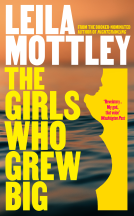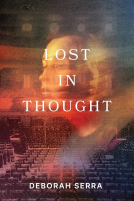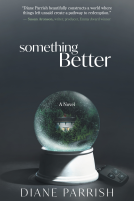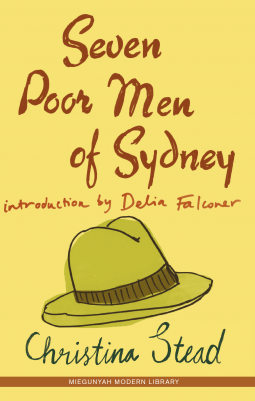
Seven Poor Men of Sydney
by Christina Stead
This title was previously available on NetGalley and is now archived.
Send NetGalley books directly to your Kindle or Kindle app
1
To read on a Kindle or Kindle app, please add kindle@netgalley.com as an approved email address to receive files in your Amazon account. Click here for step-by-step instructions.
2
Also find your Kindle email address within your Amazon account, and enter it here.
Pub Date Jan 02 2015 | Archive Date Mar 15 2015
Melbourne University Publishing | Miegunyah
Description
Originally published in 1934, Seven Poor Men of Sydney is Christina Stead's first novel, a brilliant portrayal of a group of men and women living in Sydney in the 1920s amid conditions of poverty and social turmoil.
Set against the vividly drawn backgrounds of Fisherman's (Watson's) Bay and the innercity slums, the various characters seek to resolve their individual spiritual dilemmas through politics, religion and philosophy.
Their struggles, their pain and their frustrations are portrayed with consummate skill in this memorable evocation of a city and an era.
Christina Stead was born in Sydney in 1902, and died there in 1983. Most of her life was spent elsewhere: in London, Paris and other European cities, and in the United States. Her first book, The Salzburg Tales, was published in 1934, followed by twelve more works of fiction. She was the recipient of the inaugural Patrick White Literary Prize in 1974.
A Note From the Publisher
AU/NZ rights only. Requests outside of this region will be declined.
Available Editions
| EDITION | Paperback |
| ISBN | 9780522861990 |
| PRICE | A$24.99 (AUD) |
Average rating from 3 members
Featured Reviews
‘The hideous low scarred yellow horny and barren headland lies like a scorpion in a blinding sea and sky.’
Set in Sydney in the 1920s, this novel constructs a portrait of seven poor men (and one woman) based on their personal and social relationships. The seven men are Joseph Baguenault, Tom Withers, Baruch Mendelssohn, Gregory Chamberlain, Michael Baguenault, Tom Winter, and Kol Blount. The woman is Catherine Baguenault, Michael’s half-sister.
The first two chapters of the novel are focussed on Michael, and paint a portrait of an introspective and intense young man who has rejected ties to his family (except Catherine), his church and his school. After falling in love and being rejected, Michael had enlisted in World War I, and then returns to Australia alienated and suffering from nervous disorders. Once back in Australia, Michael takes up with several of the young socialists with whom Catherine - an idealistic political activist- works.
Their cousin Joseph Baguenault, a devout Catholic, is a printer, who works with Baruch Mendelssohn, a young Jewish intellectual at Gregory Chamberlain’s printing press. Chamberlain is incompetent: business is bad and payments to his staff are two months in arrears. Tom Withers, also employed by Chamberlain, is plotting to take over the press. Socialism and capitalism are discussed, with each of the characters responding in accordance with their own viewpoints. But talk does not lead to improvement.
‘A suicide at the Gap was a commonplace affair. Everyone knew why a person committed suicide: if it was a man, because he couldn’t pay his bills or had no job; if a woman, because she was going to have a baby.’
While each of the characters is subjected to forces outside their control, it is Michael who loses his life:
‘He takes a step nearer the edge, and at the same moment this idea splits him from head to foot: “What if I should fall upon a rock?” He falls into the sea, the wave a moment later cracks his skull against the submerged pediment of the cliff, and his brains flow out among the hungry sea-anemones and mussels.’
Shocked by this event, Catherine is eventually driven into an asylum, and Joseph’s religious faith is shaken. None of the eight main characters was able to achieve either economic security or a satisfying life in Australia. Youthful idealism provides no escape from lives blighted by poverty. Neither capitalism nor socialism has the answers. But this isn’t a novel about salvation and solutions. In part it’s about conflict and relationships between characters, and about class oppression. But it’s also a window into their inner lives, and a reflection of the times.
‘I live with men who make buildings, newspapers, machines, designs for cloth. You housewives are absolutely ignorant of the world; you don’t know how stories are fabricated in newspapers or in scriptures, how the house is put together, how cloth is made or dyed.’
I will reread this novel, not so much because of the story but because of the language used and the relationships depicted. This is one of those novels that made me stop frequently, to think about how life may have changed, or not, for the poor and the idealistic.
In her introduction to this edition, Delia Falconer writes that this novel:
‘.. is a dark love letter to Sydney, a portrait of madness, and the study of a lost generation. It is brimful of overlapping visions, realist, modernist, collective and Nietzschean.’ I don’t think it’s necessary to recognise all of those overlapping visions in order to appreciate the story.
This was Christina Stead’s first novel, and the only novel set entirely in Australia. Note: My thanks to NetGalley and Melbourne University Publishing for the opportunity to read this new publication of ‘Seven Poor Men of Sydney’ which was first published in 1934.
Jennifer Cameron-Smith

